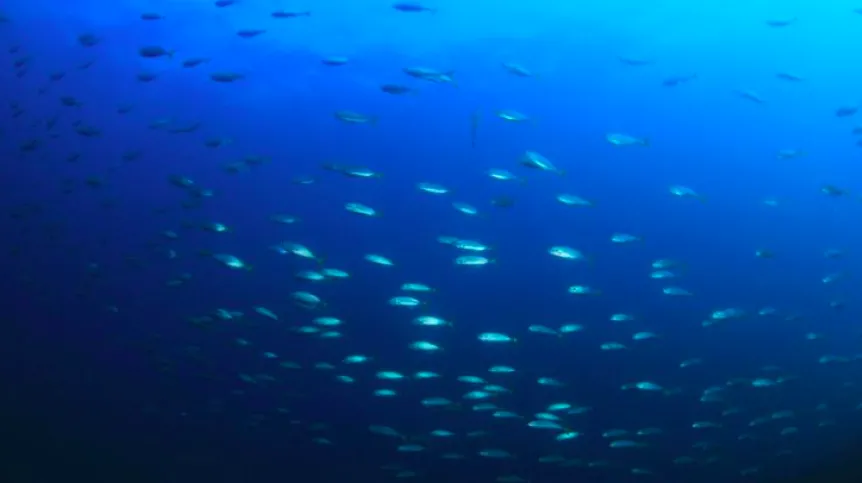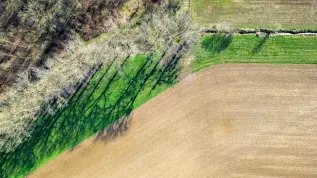
This season, we should buy herring rather than sardines or cod. Overfishing can lead to the situation, in which our children and grandchildren have limited access to fish that are common today. Justyna Zajchowska from WWF advises on how to buy fish from sustainable catches.
Modern technologies in fishing allow people to catch much more fish and seafood than nature is able to restore during the year. If stocks are overfished, in the future the resources of fish and other marine organisms will be in an increasingly fragile condition, and their survival will be at risk. Environmentalists alarm that we should not only think about what we can have on our plates today, but also preserve resources for the future.
"Let future generations - our children and grandchildren - have a chance to taste dishes that we like so much. In order to preserve fish and seafood for future generations, each of us must make responsible consumer decisions - in a store or restaurant" - says Justyna Zajchowska, sustainable fishing and protection of marine ecosystems expert from WWF Polska.
To ensure that the future of fish is not threatened, catches should be carried out in accordance with the principles of sustainable fishing. According to the WWF environmentalists, the problem is that the fishing limits set by the EU ministers responsible for fisheries are too high for too many fish stocks. So even if fishermen follow the law, we are still dealing with overfishing. That is why environmentalists are urging consumers to take matters into their own hands and shape the demand for fish so that non-sustainable fishing becomes unprofitable.
In the guide "Which fish for dinner?" WWF explains how to buy fish and seafood responsibly.
The simplest indication for buying fish responsibly is an MSC or ASC certificate. The MSC certificate means that a wild fish comes from sustainable fishing, and ASC - that fish farming is carried out responsibly.
If the product does not have such a certificate, the WWF guide can help with the purchase. The organization suggests looking for information on the origin of the fish on the packaging or labels in the store. "The condition of fish stocks of the same species may vary depending on their location" - explains the expert.
Before buying a fish, you should find its exact species (for example Atlantic salmon or one of the Pacific salmon species). Another important information is the fishing area - information where the fish was caught. The third information concerns the tools used during fishing.
"Manufacturers are required to provide this information. If a manufacturer fails to do that, responsible consumer should assume that the fish has been caught in a manner inconsistent with the principles of sustainable fishing. I never not buy unmarked fish" - says Justyna Zajchowska. She urges consumers to ask sellers about the origin of the fish. This will increase their awareness of this problem.
Information about the fish and its origin should be checked in the WWF guide updated every year. Fish are marked with three "lights": red (do not buy), yellow (avoid) and green (safe to buy).
The species which according to the current WWF guidelines should not be bought (red light) include European eel (the species is critically endangered with extinction) and noble crayfish. No green light (and only yellow or red instead) can be found by fish such as: Greenland halibut, flounder, sardine, sea bass, sea bream or turbot.
Justyna Zajchowska says that we should also be careful with cod caught in the Baltic Sea, because the two Baltic cod stocks are currently in poor condition. In the latest edition of the guide, WWF recommends only buying MSC-certified cod.
According to the WWF expert, the Baltic fish we can safely buy include herring, which are usually available in Poland from sustainable fishing.
Carp from European farms also has green light. "But there is another problem with carp - the sale of live carp causes its suffering and stress. Please remember that every fish - as a vertebrate - is fully covered by the provisions of the Animal Protection Law, including the cruelty prohibition. Packing a live carp in a plastic bag or keeping carp in excessively crowded space causes suffering and is punishable. Report it to the police" - she says.
When it comes to Atlantic salmon, WWF recommends only MSC-certified fish. As for Pacific salmon species, salmon from Canada and Alaska have green light, but those fished in Russia do not.
It is also important how fish are caught. "Some tools are less, others more harmful to the marine environment" - says the ecologist from WWF. She explains that one of the more harmful fishing methods is bottom trawling. It involves dragging a weighted net on the seabed and taking everything into the net. "This method not only destroys the seabed and demersal habitats, but also causes a lot of bycatch, accidental fishing. It kills many marine organisms that are not the target of fishing" - she says.
"In order to make responsible choices when buying fish, we must spend a little more time at the store shelf. But it will pay off - not only for us, but also for future generations" - concludes the expert.
PAP - Science in Poland, Ludwika Tomala
lt/ zan/ kap/
tr. RL













